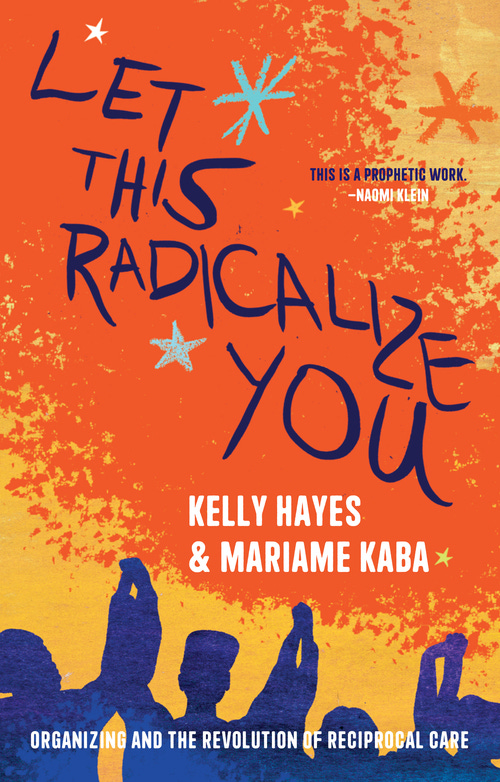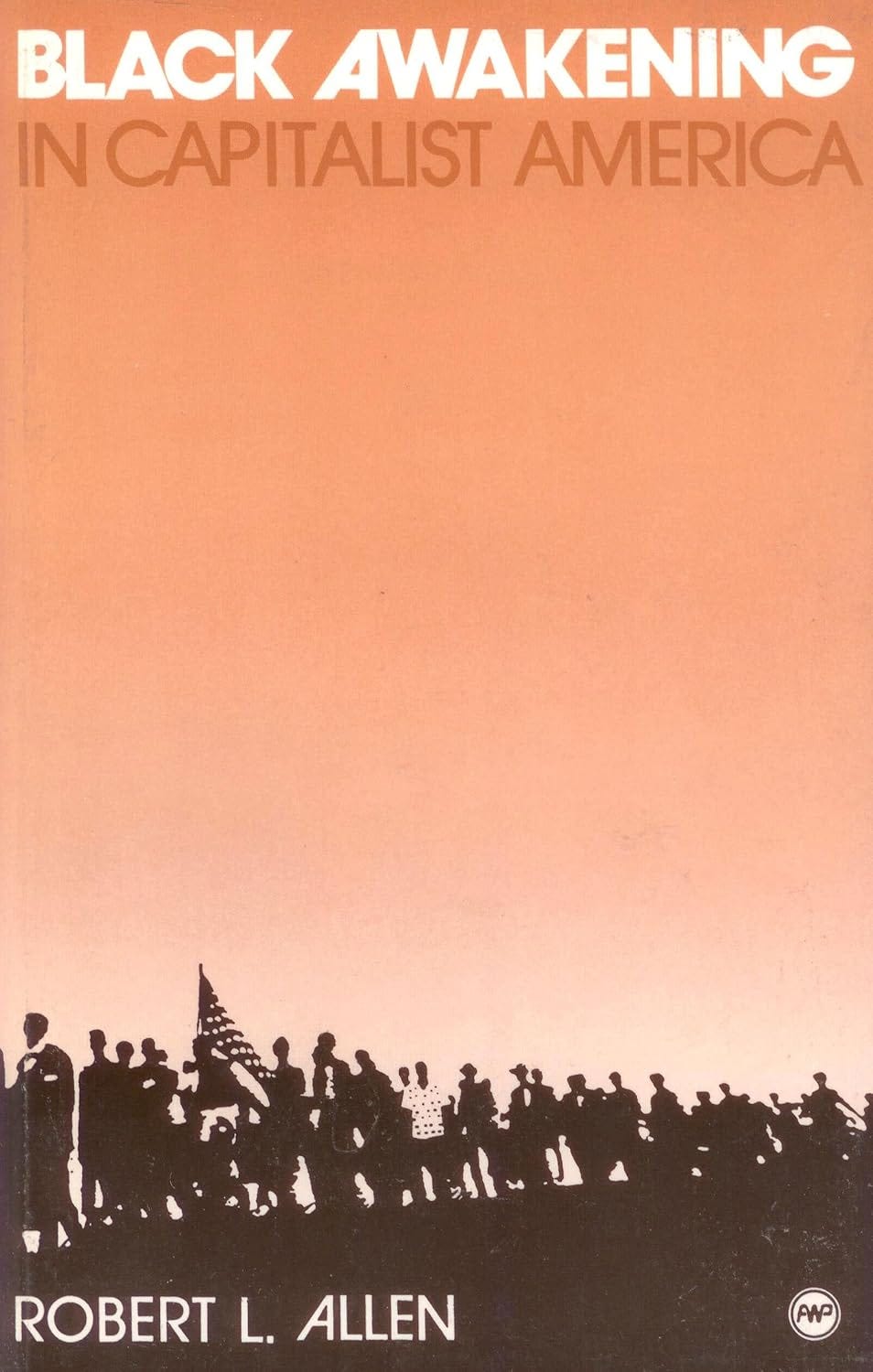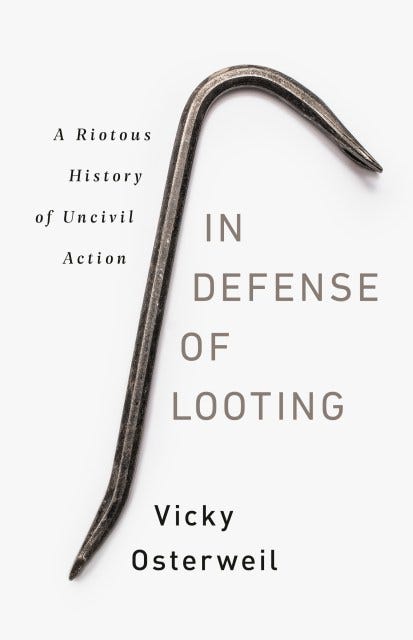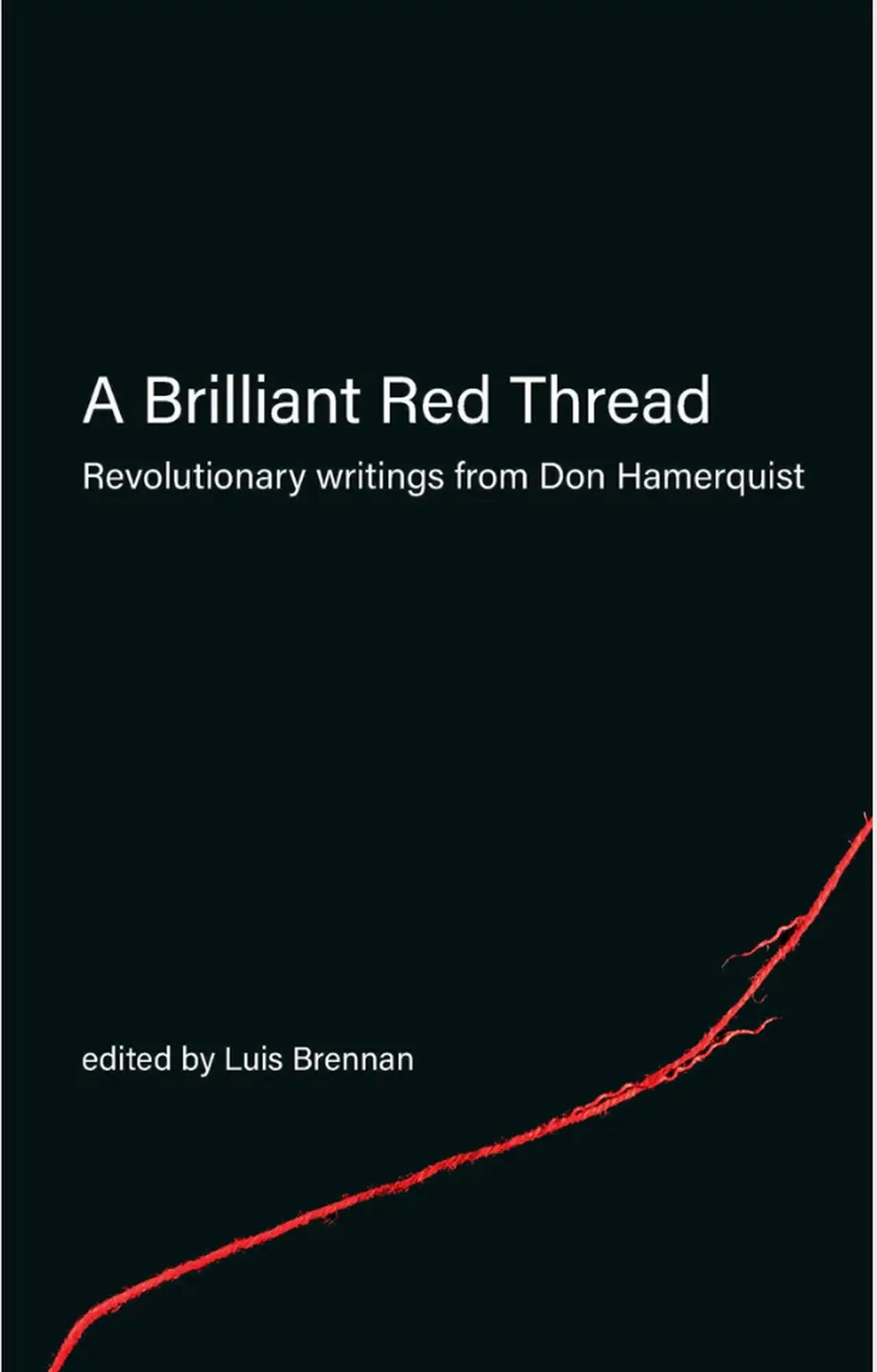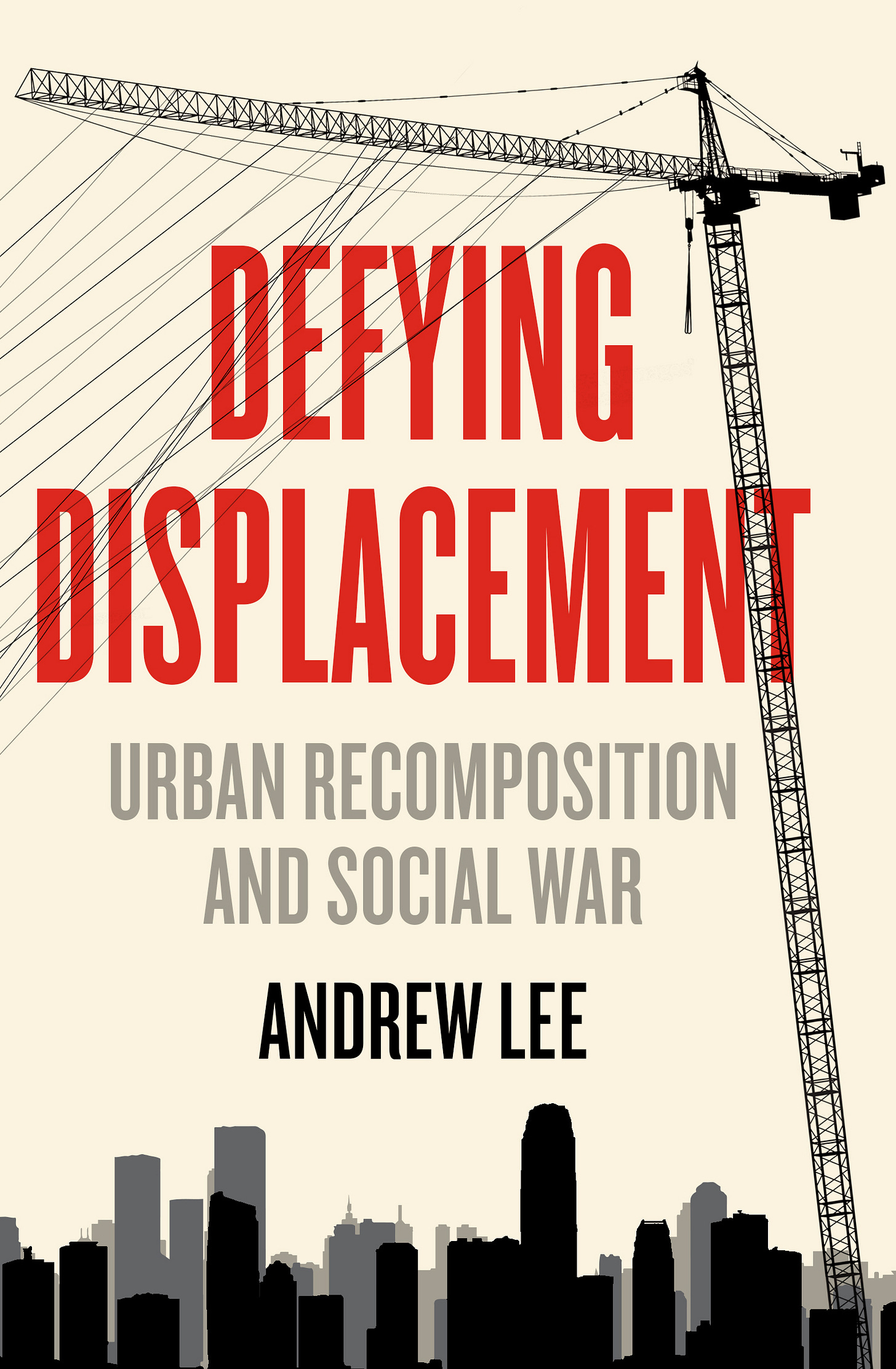I am generally skeptical about the idea of social movements forming around Radical Books—despite having hypocritically written one myself. In a country where a majority of adults are “functionally illiterate,” I don’t think leftist book worship is any way to build a fighting mass movement.
But if you’ve found your way to this Substack, you’re presumably already reading-inclined. So today I’m sharing five texts that have helped me orient myself in recent years. This is not a collection of the leftist Great Books, but rather writing that I’ve found particular useful to think through and share. I have found them provocative, important, and beautiful. I hope you do, too.
1. Let This Radicalize You
“In many ways, this book is an invitation. An invitation to dream, an invitation to consider, an invitation to build, to experiment, to act. As organizers, we extend many invitations, and we hope that people will join us in the streets, on the picket line, at a meeting, or to learn and share ideas.”
What an incredible text, one equally appropriate as a first introduction to radical politics as it is as a series of comradely reminders for experienced organizers. I was gifted a copy by a comrade in the Philadelphia Chinatown anti-gentrification campaign; I then gave that copy to another comrade in the same struggle.
Let This Radicalize You: Organizing and the Revolution of Reciprocal Care by Kelly Hayes and Mariame Kaba (Haymarket Books).
2. Black Awakening in Capitalist America
“In the United States today a program of domestic neo-colonialism is rapidly advancing. It was designed to counter the potentially revolutionary thrust of the recent black rebellions in major cities across the country.”
I came across this book during the summer of 2020 when efforts to divert, repress, and co-opt the George Floyd Rebellion were in full swing. Let me tell you: that was a doozy. Allen analyzes how the very same thing happened to turn the 1960s Black freedom struggle from a revolutionary moment to the non-profit industrial complex of the present day. If you’re going to read one book to understand the post 60s political climate in the United States, make it this one.
Black Awakening in Capitalist America by Robert L. Allen (Africa World Press).
3. In Defense of Looting
“Looting is so unpopular not because it is an error or bad for the movement but because it is often a movement’s most radical tactic. Looting attacks some of the core beliefs and structures of cisheteropatriarchal racial capitalist society, and so frightens and disturbs nearly everyone, even some of its participants.”
Fortuitously published in August 2020, this book’s title alone inspired the unhinged vitriol of liberal pacifists across the America. Dive into the actual book for a sweeping history of racial capitalism and racialized resistance in the United States, one rooted in a deep engagement with the Black Radical Tradition. If we are to win a liberated future, Osterweil argues, we’ll have to loot it ourselves. This book is an expanded version of her also-excellent piece in the The New Inquiry of the same name.
In Defense of Looting: A Riotous History of Uncivil Action by Vicky Osterweil (Bold Type Books).
4. A Brilliant Red Thread
“For revolutionaries and revolutionary organizations, including anarchist ones, certain principles should be axiomatic—across all types of borders; an injury to one is an injury to all; under all circumstances, it is good and therefore “right to rebel.” The validity of these principles is established through revolutionary political practice over the long haul, not by decisions of the moment, no matter how participatory and democratic the process may be.”
If Let This Radicalize You is required reading for new organizers, A Brilliant Red Thread fills the same role for revolutionaries. Don Hamerquist participated in a breathtaking array of revolutionary organizations, from the CPUSA to militant anti-imperialism to the anarcho-punk influenced Anti-Racist Action. The pieces in this collection largely stemmed from Hamerquist’s writing to other militants in revolutionary formations; “political discussion among political people,” in his words. For those orienting themselves in the revolutionary left, this book is worth the price of admission for the glossary alone, covering everything form “actually-existing socialism” to John Zerzan.
A Brilliant Red Thread: Revolutionary Writings from Don Hamerquist edited by Luis Brennan (Kersplebedeb).
5. Beginner’s Kata
“Like all complex mechanisms, like a hospital emergency room or a tank brigade, actual revolutionary organizations are super high maintenance. If you’ve never been in one, know that they are a big pain in the ass to keep going. They are also obviously highly dangerous, more dangerous than sex work is or a contract firefighting crew is, or being a clueless u.s. army private somewhere. For sure. So they had better be worth it.”
This essay is available both as a zine and collected within The Shape of Things to Come. You can also read it free online. Author J. Sakai is infamous as the author of Settlers: The Mythology of the White Proletariat from Mayflower to Modern, which controversially argued that the storied White Working Class is in fact nothing of the sort. I actually think Sakai’s shorter works are where he shines: smart, unorthodox interventions grounded in the revolutionary left. Here, Sakai reassesses the prospects for revolutionary organization beyond the strictures imposed by Marxist and anarchist orthodoxy. A great companion to A Brilliant Red Thread, this piece has been hugely impactful on my own political development.
Beginner’s Kata: Uncensored Stray Thoughts on Revolutionary Organization by J. Sakai (Kersplebedeb).
(Dis)honorable mention: Defying Displacement
“As resistance to removal grip cities around the world, there is no room for time-worn theories about liberation that leave as little room for the actual struggles of the gentrified as do the narratives of the powerful.”
If you like what I write here at In Struggle, you may be interested in my book on global resistance to the gentrification economy. Based on interviews with over a dozen activists across the so-called United States and the experience of communities in struggle around the world, Defying Displacement argues that struggles to defend home and land are one of the leading edges of confrontation with contemporary capitalism. If you get a copy, you not only support me but the incredible team at AK Press and the Institute for Anarchist Studies who made this book possible.
Defying Displacement: Urban Recomposition and Social War by Andrew Lee (AK Press).
This post has been syndicated from In Struggle, where it was published under this address.

